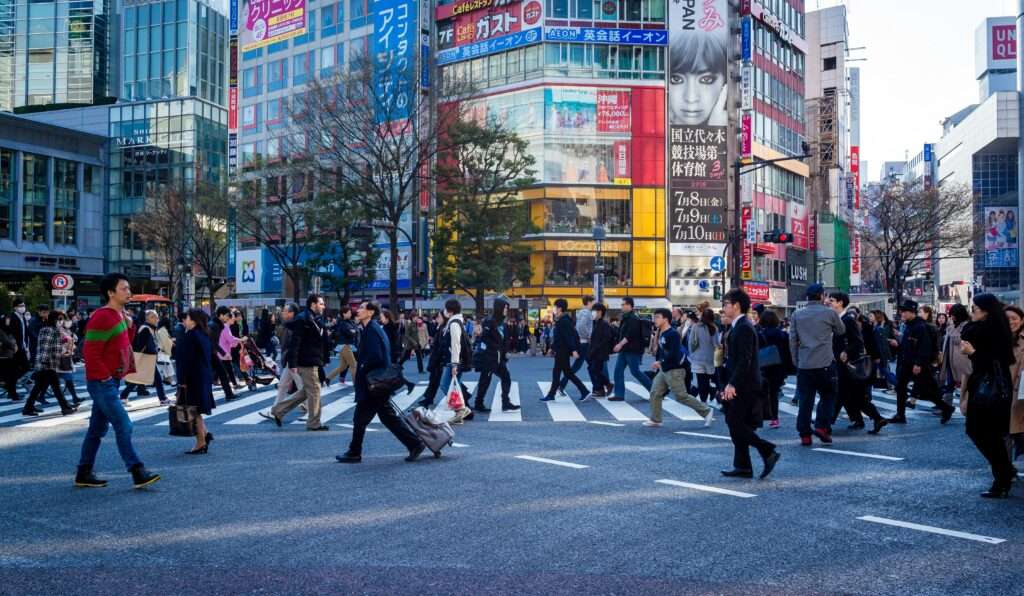When I was first traveling to Japan some aspects of them shocked me. If you’re planning a trip to Japan, there are a few things you should know beforehand to ensure a smooth and enjoyable experience. I am going to share you my top 10 things I might be aware of before coming to Japan
1. Cash is King
Despite Japan being a modern country, cash is still widely used, and many establishments do not accept credit cards. While major department stores, retailers, and restaurants may take cards, smaller businesses like local eateries, street vendors, and some taxis often prefer cash. Consider carrying enough cash, and if you prefer using cards keep it in mind Visa card is more widely accepted than American Express.
2. Eating and Drinking Etiquette
In Japan, it’s generally frowned upon to eat or drink while walking on the street. While there are exceptions like “TABE-ARUKI” spots which means eat and walk. These are the places like Tsukiji Fish market and festivals. Stopping to enjoy your food or drink is considered more polite. Additionally, strong food smells and the possibility of spilling on others contribute to this cultural norm.
3. Drinking Age
The legal drinking age in Japan is 20 years old, and alcohol is easily accessible, even from convenience stores and vending machines. You can literally go to any convenience store and they’ll sell you alcohol and not ask you how old you are if you just look like you’re 20 years old in fact there are still beer vending machines on streets in hotels etc. they don’t even require any proof of age. However, recent regulations require age verification at the point of sale to prevent underage drinking.
4. Tattoos and Onsen
Traditional Japanese hot springs, known as onsen, often prohibit entry to individuals with tattoos due to their association with the Yakuza or organized crime. While some establishments are becoming more lenient, it’s essential to check their policies beforehand.
5. Wi-Fi Availability
Major cities like Tokyo offer relatively fast internet access, but for continuous connectivity, consider options like free Wi-Fi at Starbucks or city Wi-Fi in major areas. Renting a portable hotspot or getting a SIM card for your device are also viable solutions.
6. Smoking Laws
Japan has lenient smoking laws, with many restaurants and izakayas allowing smoking indoors. However, regulations are becoming stricter, especially regarding indoor smoking. Designated smoking areas are common on city streets to accommodate smokers.
7. Train Etiquette
Avoid peak hours when riding commuter trains in major cities like Tokyo, as they can be incredibly crowded. Women-only train cars exist during specific times to address issues of harassment. Keep your phone on silent and don’t make any loud noises while riding a train. Understanding and respecting these norms is crucial when using public transportation.
8. Tipping Culture
Unlike many Western countries, tipping is not customary in Japan. The price on the bill is final, and there’s no need to calculate or leave an additional gratuity. However, some restaurants may have table charges, so be aware of this practice.
9. Hotel Fees
In Japan, hotel rates may be calculated per person rather than per room, leading to higher costs for additional guests. Consider alternative accommodations like Airbnb or hostels for more budget-friendly options.
10. Cooperation with Police
Japanese police have broad authority to stop individuals and ask for identification, even on suspicion alone. While it may seem intrusive, cooperating with police requests can prevent unnecessary delays or complications.
In conclusion, Japan offers a unique blend of tradition and modernity, and understanding cultural norms can enhance your experience while visiting. Remember to be respectful, open-minded, and prepared for cultural differences. By following these tips, you’ll be better equipped to navigate Japan and enjoy all it has to offer.








